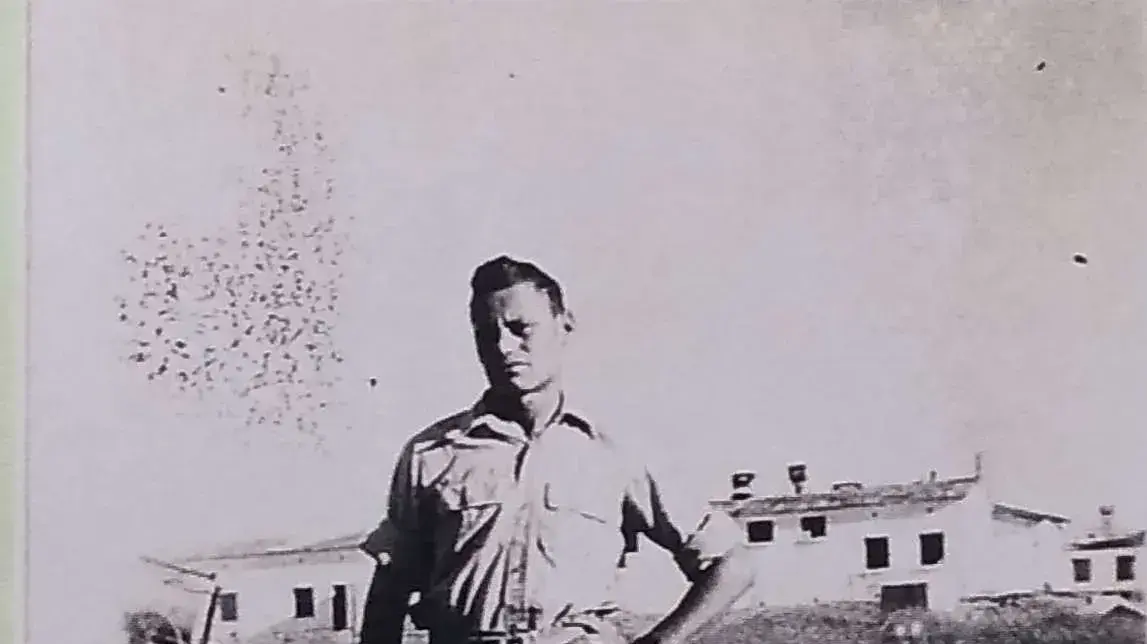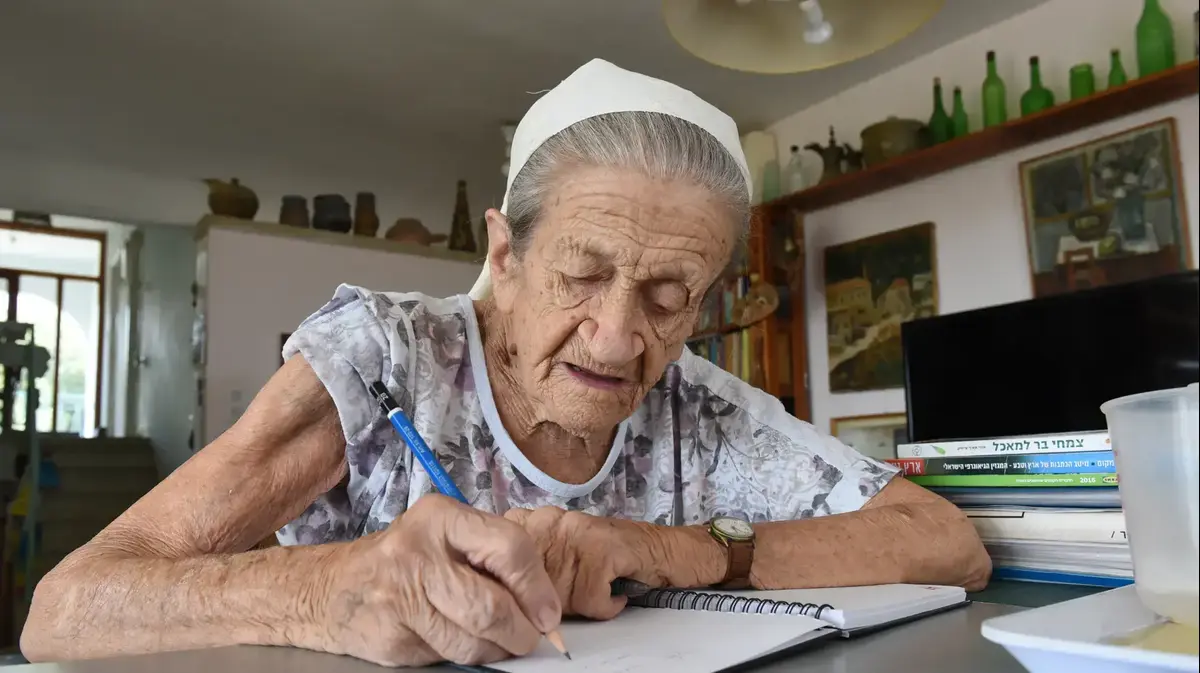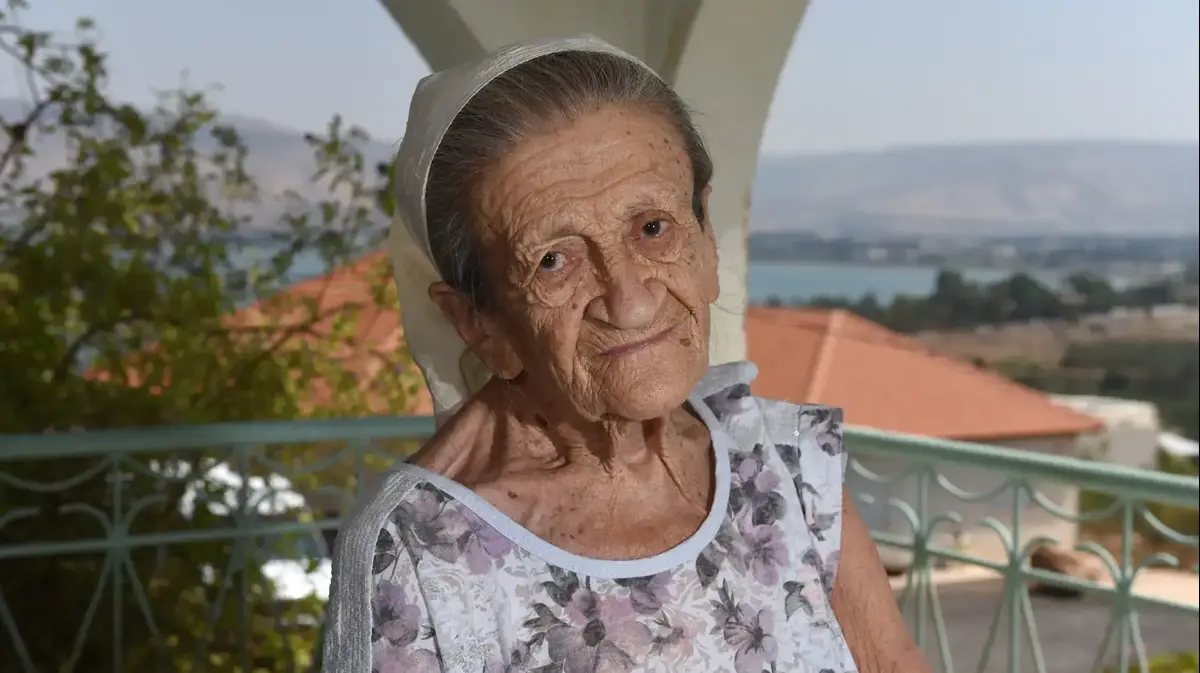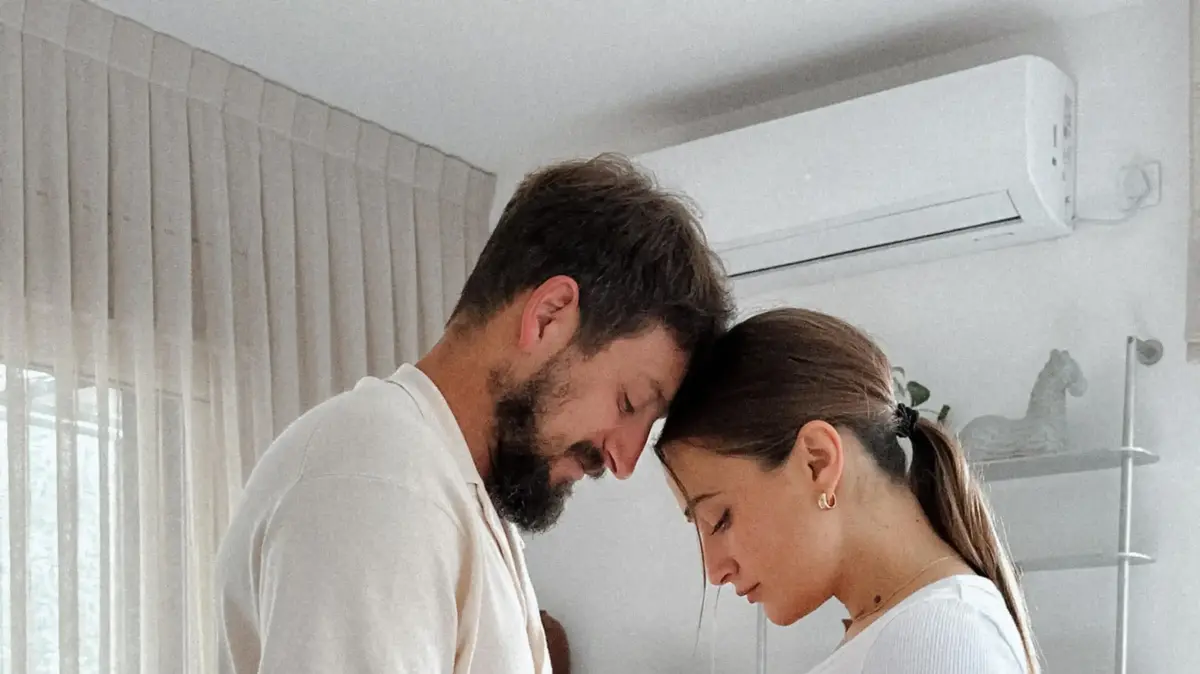Moshe Kehat (photo: courtesy of the family)
Every year, on the day of remembrance for the martyrs of the Israeli systems, Moshe Kehat would come to the museum of underground prisoners in Acre and lay a wreath in memory of the fallen.
Kehat, a bereaved brother, chose a place where he himself was forbidden for almost a year of his life, as a site that symbolizes for him the heavy price on the road to the establishment of the state.
A week ago Moshe Kehat passed away and he is 94 years old.
Moshe Kehat was born in 1929 in Warsaw, Poland.
His parents, Yosef and Hasia, had five more children.
His father had a factory for the production of ropes and the family lived financially well.
The Jewish population in Warsaw then numbered over 300,000 people, and made up about a third of the city's population.
The Kehats were among the Zionist movement that was significant among the community in Warsaw and as a result decided in 1933 to immigrate to Eretz Israel.
Upon their arrival, they settled in Kfar Ata, which thirty years later became Kiryat Ata.
Yosef Kehat bought a plot of land where he grew apples.
A few years after he immigrated, he was accepted into the Hebrew settlements police and served as a monitor in the settlement where he lived.
When Moshe was 12 years old his mother died and as a result four of the family's children moved to the "Diskin" orphanage in Jerusalem.
Little is said about this period.
The reality of life in the orphanage created a close bond between the four brothers.
At the age of 16 and a half he decided that he wanted to enlist in the Palmach and he joined the ranks of the religious department of the Palmach.
Moshe Kehat (photo: courtesy of the family)
"This weapon is a protective weapon. We ascended into the wilderness to rock, plant and build in it a flourishing settlement-a house with us and the outcast brothers. When we ascended to cheat with arrows we knew: we were ascending to a place of danger
The religious department was established in 1942. In January 1945, the religious department established the holding in Biriya north of Safed, which was intended to demonstrate the Jews' ownership of the land in view of the Arabs' claims to their own ownership of the land.
Its members owned the point and for their livelihood were employed in forestry work on behalf of the Foundation.
According to the planning, the point was supposed to become a settlement for Jewish soldiers after they were released from their service in the British army in World War II.
Beyond the capture of the point, the security tasks of the members of the department were to gather intelligence on the Arab villages in the area as well as on possible targets such as bridges, railroad tracks and army camps.
In a raid by the British police on Biriya in February 1946, a weapon was found, as well as various documents and military literature.
All 24 members of Biriya, including Moshe Kehat, were arrested and taken to Acre prison and Biriya was taken over by a British force.
The affair agitated the Hebrew community and it increased after it became clear that in view of the detainees' refusal to give fingerprints, the guards broke their fingers.
It was decided to carry out an operation to express the community's protest and on the 11th of Adar, the day of the traditional aliyah to Tel Hai, 3,000 people arrived in Biriya and set up a tent camp called Biriya B. After a siege, the settlers were forcibly evicted by about 3,000 British policemen. The settlement was rebuilt and evacuated again By force. This time, the British sent in about 10,000 soldiers and policemen for the mission.
At the end of May, the trial of the detainees in Bira began. Moshe Kehat was the youngest of them all. In order to lighten the expected prison sentence, the detainees' lawyer, lawyer Aharon Hotar-Yashi, stated that Kehat is A 16-year-old boy.
The detainees admitted to the charge of possession of the weapon and their representative, Yehuda Nitzan, read a statement before the judges:
"A weapon is a protective weapon. We went up into the wilderness to rock, plant and build a flourishing settlement in it - a home for us and our outcast brothers. When we went up to cheat with our guns, we knew: we were going to a place of danger. Near our settlement, a Hebrew point has already been destroyed twice by dark forces (he meant Ein Zeitim , A.A.). People were murdered and their lives set on fire. We decided not to abandon our lives, the lives of our children and our enterprise to destruction. The
defense of ourselves and our enterprise is a necessary way and a right to existence. We cannot give up this right and we did not give it up even if the law forbids it . We would be ashamed to stand before you as people who cannot defend themselves. We turned to work, to building and to peace. Our weapon is a protective weapon. Feeling justice for the sanctity of our right, we are true to your judgment."
More in Walla!
B-Cure Laser - Does it help knee pain?
The truth is revealed
Served on behalf of B Cure Laser
Moshe Kehat (photo: courtesy of the family)
The trial lasted a week and, as a continuation of the Birya affair, aroused great public interest.
Kehat, who was the youngest among the detainees, received special attention.
"The boy's sun did not shine," the newspaper "Habokar" wrote after the sentence was handed down.
"In his childhood, Naitaim and his sixteen springs were not saturated with honey and he did not know the playfulness of boys. From his childhood until a few months ago, his world was shrunk within the walls of the Diskin Orphanage in Jerusalem."
In the rest of the article, his arrival at the "Bnei Akiva" branch and his announcement that he wants to come to Biriya is described.
"But you won't be able to adapt to the conditions of the place. This is a lonely and desolate place and the work there is hard and arduous. Go back to the orphanage and when you grow up, come back to us," he was told.
"But Moshe doesn't let up. 'Is it hard to work in Biriya?'- he smiles with the same childish tone that he didn't shake off even later during all the days of the trial. 'Difficult you say? But night after day of the Gemara page, isn't it hard?'"
Due to his young age, Kehat was sentenced to one year in prison, as well as another boy, Avraham Yachaya.
Two more were sentenced to two years in prison and the remaining 20 were sentenced to twenty years in prison.
The prison was not easy and on one of the days the Biriya prisoners even faced an attack by Arab prisoners.
Kehat hastened to dismantle iron shelves and provided his friends with metal parts that were used for their protection.
Kehat and Yahya were released eight months later and in June all the other prisoners were released thanks to an amnesty granted on the occasion of Queen Elizabeth's birthday.
"An optimistic, happy and energetic person"
Upon his release from prison he returned to operational activity and together with the Palmach detachment from Kfar Rupin went to the aid of Kibbutz Tirat Zvi, which was attacked in February 1948 by Arab gangs and the attack was repelled. The attackers had dozens of dead. With the establishment of a battalion on March 13, 1948, he was recruited with his friends into the "Golani" and participated in battles in the Nazareth area, the Jordan Guard and Khan Yunis. He lost good friends in the battles. In one of the battles in the south of the country, he rescued a friend who was seriously injured and carried him for eight kilometers and saved his life. He then served for many years in reserve service. His family suffered a severe blow: at the end of 1947
Yehuda , Moshe's brother who was three years older than him and served in the Hagana, was shot to death by a gang lurking on the side of the road, while he was riding his bicycle from Kiryat Ata to Atlit. He was on his way to the refugee camp in Atlit, after the family learned that their relatives who survived the Holocaust had arrived in Israel and are there.
After he was released from the army, he worked for a year at an electrical company, and after his marriage to Rebecca and their move to the center of the country, he began working for the "Elco" company.
Ten years later, he moved to work at Rafal (Weapons Development Authority). He had spontaneity and an attraction to the technological professions. In addition, he studied mechanical engineering at the Technion. He reached the position of managing a Rafal plant, but ten years later he decided to leave Olam Technology and Industry and moved to work in the insurance field.
After twenty years of marriage, Rebecca died and about a year later he married Hannah.
He loved music and singing and when he lived in an assisted living facility he was also a member of the choir.
For many years he danced in ballroom dance meetings and all his life he was involved in sports activities, a field he loved and was close to his heart since he completed a sports instructors course at the end of his military service.
His daughter Zehavit said that her father was "a man with charm. He was loved wherever he was. Even in the therapeutic wards where he stayed at the end of his life, when he was no longer at his best, people connected to his personality and he entered their hearts. Father was a special person, creative and Sense of humor. He made us laugh a lot. He always saw the glass as half full. He had an inexhaustible joy of life."
Throughout the years, he kept in touch with his fellow "prisoners of Biriya" from the religious department of the Palmach and made sure to tell about the department's heritage and also made sure to perpetuate the memory of his brother, Yehuda.
He left behind three daughters: Sarah, Amira, and Zabit.
news
News in Israel
Events in Israel
Tags
Palmach
UK









